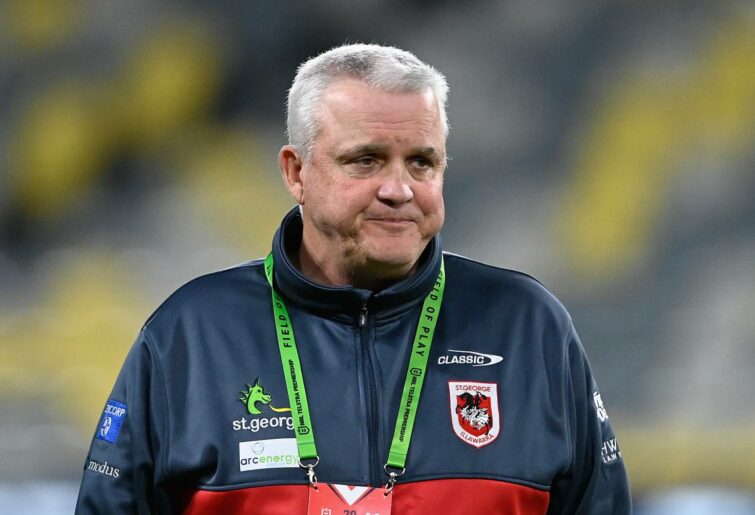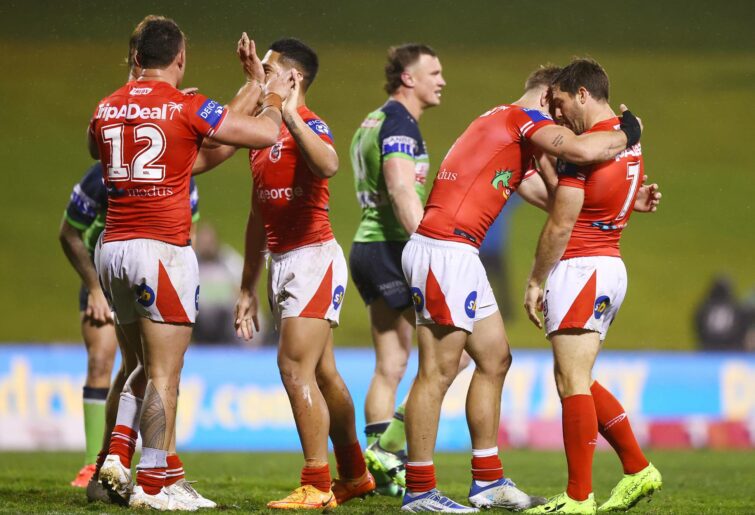Osborne,
Director at St George Illawarra
Dragons ,
CEO at Unison Outsourcing , and Managing Partner at RMB Lawyers
Graeme Gulloch Non Executive Director at St George Illawarra Dragons.Ph+61242211300
graeme@waples.com.au
Peter Doust Doust was a much-maligned CEO who lingers for reasons passing understanding. Bludger for 20yrs
Genevieve Gordon daughter of gordon the god
Martin Newman
martinn@newmans.com.au
Hard to get info but the following I couldn't resist
There’s little evidence to suggest the Dragons directors are collectively strong on strategic thinking.
Coaches will come and go but most of the furniture will remain the same. Some of it’s been gathering dust in the boardroom for nearly 40 years.
Unless you’re inclined to agitate, or even organise and have a tilt at the next board election – and this has been tried before – there’s a certain level of zen, or just resigned cynicism, necessary to stay the course.
With a small change in the offing, it’s worth revisiting what the club is, who makes the big decisions and why success will only ever be fleeting and probably accidental for the foreseeable future.
What is St George Illawarra?
The Dragons are still commonly referred to as a ‘joint venture’ due to the merger between the St George and Illawarra district rugby league clubs in 1999.
Advertisement
While Illawarra remain part of the present-day Dragons through junior development and representative teams, the club’s name and a single board appointee, there is no longer a joint venture like there is at Wests Tigers.
In 2018, the heavily indebted Steelers received an offer they couldn’t refuse from WIN Corporation, headed by Bruce Gordon and his Dragons supporting son Andrew,
with WIN acquiring a 50 per cent stake in the NRL club.
The Dragons are now a mixed ownership model, more akin to Souths than Wests.
The board is comprised of eight directors, four from St George Leagues Club and four from WIN, including the one Steelers representative who must be formally nominated by the new part-owner. Despite an even number of directors, the Chair does not possess a casting vote.
The leagues club remains a profitable entity and has ridden out the downturn caused by COVID-19 through a combination of its cash reserves and government help. It’s also still sitting on some valuable physical assets in Sydney.
[profitable entity:
https://stgeorgeleagues.com.au/wp-c...C-Annual-Financial-Report-31-October-2021.pdf]
WIN is – how to say this politely and without getting anybody sued – something of a mystery. It’s not bound by the disclosure obligations required of many other companies. By all reports, its regional media concerns are doing very well, and Gordon Sr continues to appear on various Australian rich lists.
Advertisement
So far, so good, right? Well sure, the club’s not going belly-up any time soon. But financial security does not equal direction or vision. People still need to provide these things. So, are they?
Who are St George Illawarra and what do they do?
Behind the smiling face of Ben Hunt and Griffin’s permanent scowl reside the people who are ultimately responsible for the playing roster, the coach, the facilities and, most importantly, the future.
CEO Ryan Webb heads the administration. Webb has a background in marketing Australian rules football and spent more than three years as Chief Operating Officer at Wests. He was hired by the Dragons after a brief stint at a company that provides something called an ‘augmented reality app’. As far as I can gather, that’s a fancy way of delivering spam.
While he’s surely influential, unlike many of his counterparts Webb is not a director. He advises he board and implements their directives.
Which brings us to the Dragons’ board.
On the leagues club side, we have Craig Young, a former premiership-winning player and policeman, Peter Doust who spent nearly two decades as CEO and businessmen Peter Black and Ralph Piggott. There’s little publicly available information about the latter two, but Black’s obviously well connected, if nothing else.
Advertisement
On the WIN side, we have Andrew Gordon and WIN CEO Andrew Lancaster, as well as Craig Osborne, a general-purpose lawyer in the Wollongong area, and the token Steeler, Graeme Gulloch.
On paper, there are worse boards in the NRL but as an outsider, it’s impossible to know what goes on in these boardrooms.
The diverse groups (Wests, Gold Coast and North Queensland) might be havens of debate and creativity, or mires of indecision. The insular groups (Melbourne and New Zealand) might be stagnant puddles or just ruthlessly focused on objectives and outcomes.
The old boys’ networks (Manly) might be invaluable wells of corporate knowledge and not just the ancient and emeritus.
The Dragons are a mix. WIN’s been involved with the club longer than they’ve owned it and Gordon and Lancaster likely bring experience and discipline. Osborne’s legal practice is sufficiently diverse for him to have a useful perspective about risk. Gulloch’s probably irrelevant except when it comes to voting.
The leagues club side seems to be the problem. Doust was a much-maligned CEO who lingers for reasons passing understanding. Black’s been a St George director for nearly 40 years and Piggott’s not far behind. Young’s the Chair you have when the Chair doesn’t wield actual power. They’re in desperate need of renewal.
The board’s recent history is also a mixed bag. Just last month the Dragons and the University of Wollongong (UOW) announced plans for a $50 million community and high-performance centre adjoining the campus.
Which brings me back to Griffin. While I was not enamored of his appointment, I was happy to give him a chance. While his overall record at Brisbane and Penrith was middling, he left teams that went on to success shortly after his departure.
You can, of course, interpret this in different ways: he was either a drag on performance or adept at laying a foundation.
Regardless, what bothered me was the reasoning behind his appointment. The Dragons board
were reportedly looking for a coach with strong qualifications in terms of defence and discipline, as well as a history of being involved in successful cultures.
There was never any evidence of Griffin being a strong defensive coach at Brisbane or Penrith, and his Dragons team is currently the fifth-worst team in terms of points conceded and by far the worst when it comes to missed tackles and conceding line breaks.
The term ‘discipline’ could mean any number of things. I don’t see evidence of a shared ethic. Quite the opposite, be it foul play on the field, poor decision-making by players like Zac Lomax or indiscreet public comments by multiple players. And that’s before we get to Paul Vaughan and the infamous barbecue.
As for an involvement in ‘successful cultures’, did Griffin foster successful cultures in his previous roles or create cultures opposed to his presence? I don’t know but I’ve heard both versions.
Maybe next time, the Dragons should have a clearer idea about what and who they’re looking for. Something a bit more measurable and less open to interpretation. Based on his history, you could make a case for and against hiring Griffin as coach.
In other words, they might’ve been better off picking a name out of a hat.



